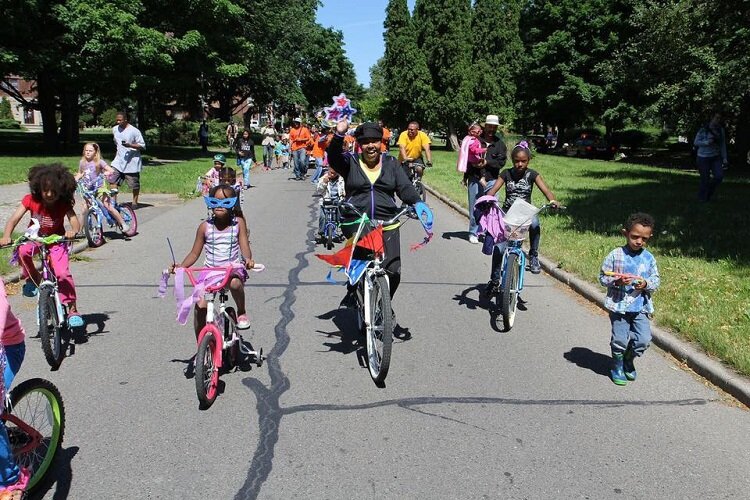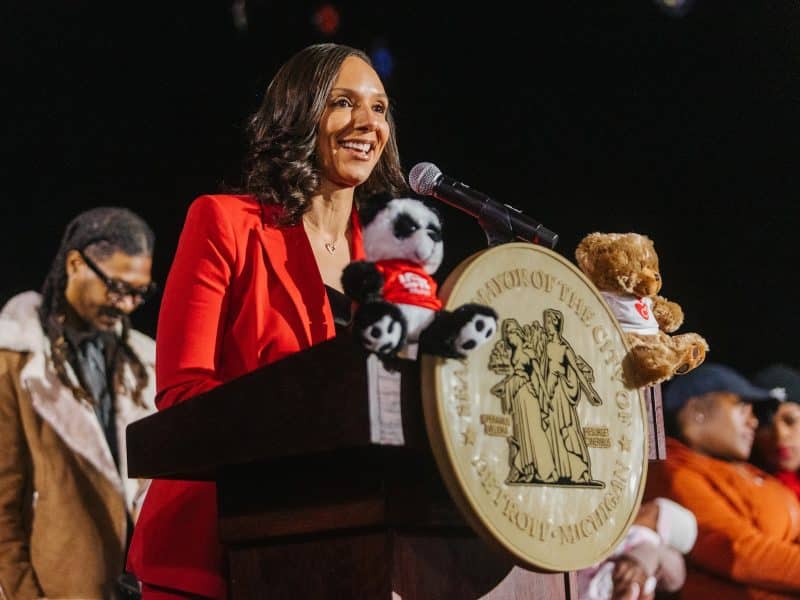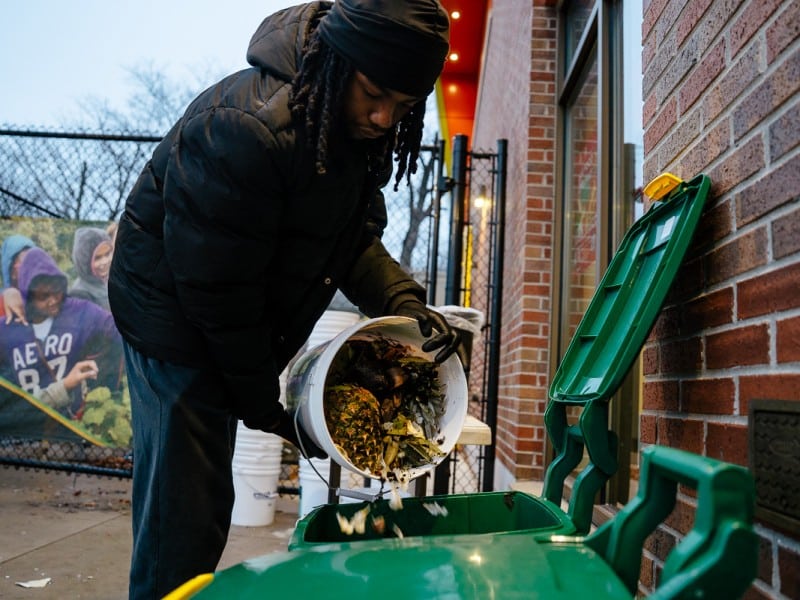Resilient Neighborhoods: 5 Detroit neighborhood groups share their secrets to success
Detroit block clubs and neighborhood associations share stories that allowed them to grow and make an impact.
Residents are an essential part of the fabric of any city. All the more so in a place like Detroit, which has struggled with economic hardship for so many years.
Detroiters have done their best to meet the challenges facing the Motor City by stepping up and joining with others to form organizations like block clubs and civic associations to improve their neighborhoods.
With that in mind, we spoke to five of these organizations around the city to find out more about their work and success.
Euclid Block Club: Get clear about roles & responsibilities
In 2014, Norma Heath got fed up with all the littering and disunity she was experiencing in her community. So she decided to start a block club for renters and homeowners on her street, Euclid, in Detroit’s Virginia Park neighborhood.
“I’d just seen a need,” she says. “I’m the kind of person that will, whenever I see somebody, I’ll get to know that person. I’ll just start talking. I’m a community
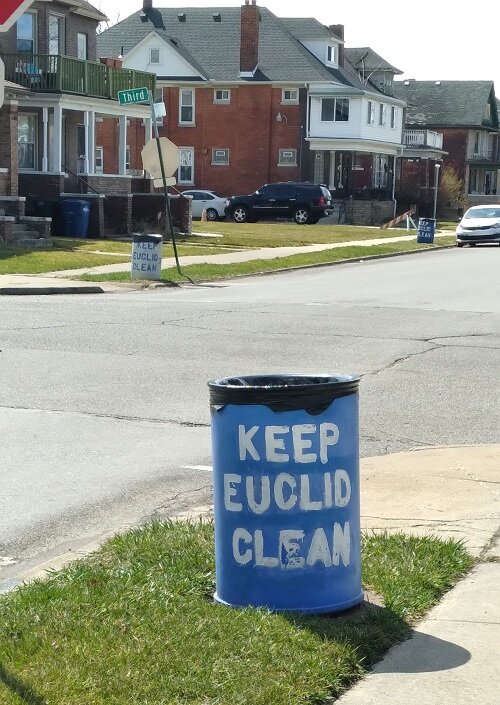
person.”
With the idea of organizing a block club planted firmly in her mind, she printed up some flyers and handed them out to neighbors, telling them that she expected them to be at the first meeting. When that time came, people showed up and began to discuss different issues in the neighborhood and address them.
People leaving trash on the ground proved to be one of the biggest problems for members of the group, so they bought a bunch of garbage cans for the neighborhood emblazoned with the slogan: “Keep Euclid Clean!” The trash cans have helped keep the area clean, and members have joined in community cleanups both on Euclid in collaboration with other local block clubs. Heath is now working with a neighbor named Lisa to beautify their neighborhood with pots of flowers.
When possible, the Euclid Block Club also collaborates with local nonprofits. They help distribute food with Forgotten Harvest. And working with The Storehouse of Hope, they installed a solar recharging station with WiFi on Euclid, allowing residents to charge their smartphones and access the internet.
With seven years under its belt, the Euclid block club is still going strong with about fifteen regular members. They’ve had to adapt to social distancing, and recently switched to Zoom calls to help keep members safe and healthy.
Heath says the key to having a successful block club is bringing together a committed group of people. Beyond that, she thinks it’s important to get clear on people’s individual roles will be.
“When you get together, talk about stuff. talk about who can do what,” she says. “Like Lisa down the street, she loves flowers. You’ve got to assign things for people to do.”
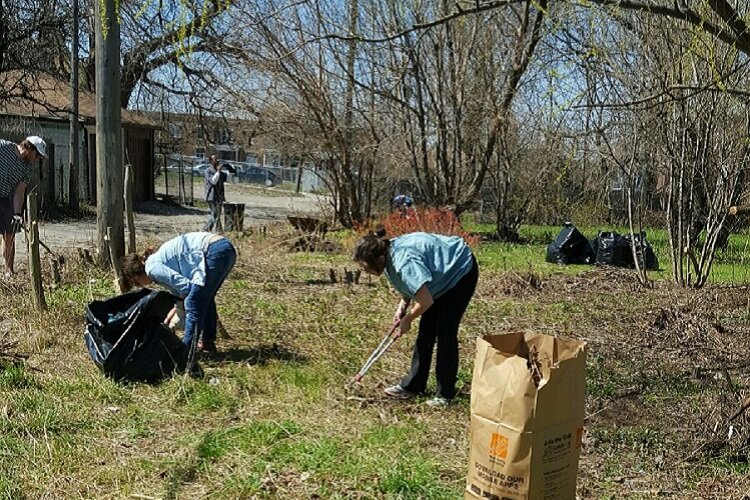
Regent Park Community Association: Work at being intergenerational
Originally called the Regent Park Homeowners association, Regent Park Community Association (RPCA) has been around since at least the 1950s. After a period of decline, RPCA has again begun to play a more active role in the community, especially when it comes to addressing issues like blight and crime.
Marcia Spivey, the group’s secretary, credits the group’s resurgence to organizing the work of two longtime residents, Willa Ray and Tonya Wall.
“They [spent] probably eight years or so trying to keep it going as a neighborhood group as a way to get individuals to come together,” says Spivey. “They decided to keep neighbors engaged about resources and opportunities.”
The Regent Park Community Association directly serves an area bounded by Eight Mile Road to the north, East. State Fair Avenue to the south, Kelly Road to the east, and Hayes Street to the west. It also engages in outreach to the broader community. While the RPCA isn’t composed of block clubs, it does collaborate with community-based organizations like the Collingham Alliance Block Club and Lifebuilders.
Over the last few years, the RPCA has put together events like ice cream socials, bowling nights, and virtual get-togethers to bring together the neighborhood, connect residents with neighborhood resources, and gather input on community issues. It’s organized community cleanup days and worked with volunteers to mow abandoned lots. For awhile, it also helped organize a community radio patrol, although that’s not currently active.
Members of the group have campaigned for speed humps to slow down traffic and put up signs to encourage drivers to slow down and discourage people from dumping trash in the neighborhood. More recently, the RPCA has also been involved in lobbying for community benefits from marijuana-related businesses that want to set up shop in the neighborhood.
Asked about the key to running a successful community organization, Spivey is quick to point out the importance of intergenerational collaboration, something RPCA is working to improve.
“I think being able to reach that 25-35-year-old population [is important,] because a lot of them are families,” she says. “We need to engage people on social networks outside of Nextdoor [and] have strong partnerships with people who use Instagram and know the language of Millenials.”
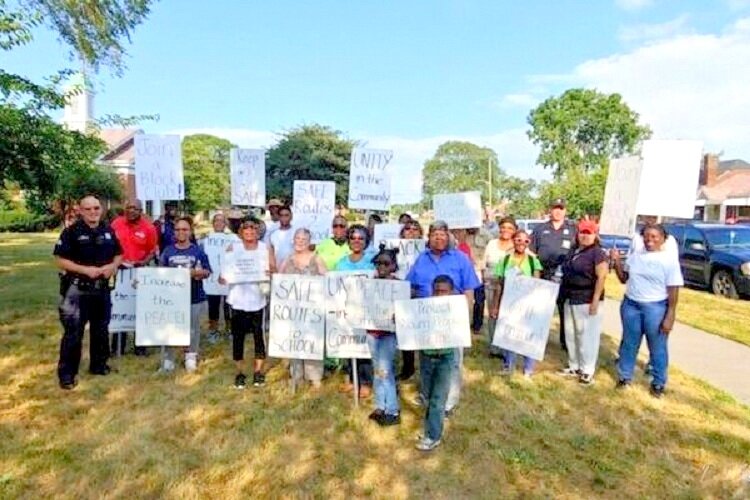
Hubbard Richard Resident Association: Be inclusive
The Hubbard-Richard Resident Association (HRRA) is one of the new kids on the block for Detroit community organizations. It came into existence in 2019 due to changes that were happening in the Southwest Detroit community where it’s based, according to Sam Butler, president of the board for the HRRA (and director of Doing Development Differently in Metro Detroit).
“We are right next to Corktown. And we’re beginning to see some of that gentrification spill over into our neighborhood,” says Butler. “And one of the best
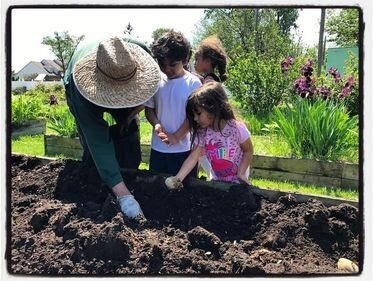
things about Hubbard Richard is that we are a mixed-income neighborhood. We want to retain that residential character.”
HRRA is a community-wide organization, as opposed to a coalition of different block clubs. While it has good relations with local groups like the Southwest Detroit Business Association and Congress of Communities, ultimately, as its name suggests, it’s a group that’s both composed of and focused on the needs of residents.
The group came together to provide residents with a forum for voicing community concerns. Members were involved in conversations around the Michigan Central Train station’s transformation and actively campaigned to oppose any effort to close down St. Anne Street near the Ambassador Bridge Plaza. It’s also dedicated to ensuring that the area’s main business corridors, Michigan and Vernor Avenues and Bagley Street, are safe, walkable, and fun places for the community to gather.
Beyond that, the HRRA has also been committed to keeping a local park, Stanton Park, clean, and maintaining a community garden there. That has provided an excellent opportunity for members of the group to speak with other residents and learn about what’s happening in the neighborhood.
While the organization initially had big plans for things like community cookouts, potlucks, and beautification events, those on hold right now to keep people safe during the pandemic. The HRRA has regularly drawn between 30 and 50 people to the public events it has held and circulates a newsletter that reaches just over 100 people in the community.
Butler feels It’s essential for groups like his to work on engaging the entire community. To make that happen, inclusivity and good communication need to be prioritized. Emphasizing those qualities can also help to create a more resilient organization.
“It can’t be on the shoulders of just a few individuals because those individuals will burn out,” says Butler. “Everybody needs to be feeling like they can be part of the group. That’s something with the culture that we’re trying to build here.”
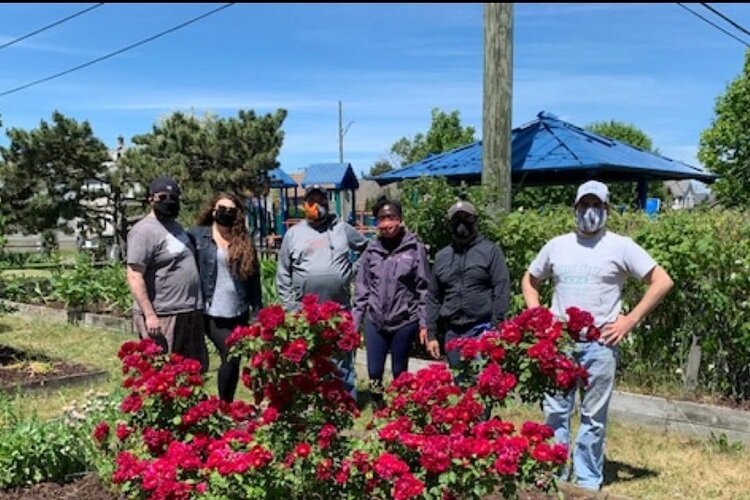
Warrendale Community Organization: Stay in touch with neighbors
The Warrendale Community Organization (WCO) is dedicated to making life better for residents of northwest Detroit. Its boundaries cover an area between Joy Road, Ford Road, the Southfield Freeway, and Rouge Park.
The group’s roots stretch back to the 1930s. Originally a community association, it became a nonprofit organization in 1979. These days it works closely with several Warrendale block clubs and provides information and services to the general community.
“We have an active Greenview Block Club, Evergreen Block Club, Artesian Block Club, Piedmont Block Club, and the Brace Block Club too,” says WCO President Barb Matney. “What we do is provide the information, and they do with it what they need to do with it.”
The organization’s efforts with block clubs can include everything from making sure they have pamphlets about rent assistance programs to helping them navigate grant requests. It even helped the Evergreen Block Club purchase a community activity lot from the Detroit Land Bank. Beyond that, the WCO is also involved in food distribution and neighborhood cleanups.
“We do quite a few cleanups per year; Motor City Makeover is really big. I usually drive all over Warrendale and choose the largest area that needs cleaning up, and that’s what we do.”
Beyond her work with the WCO, Matney, a lifelong Warrendale resident, is also involved with the Warrendale Radio Patrol and the In Memory of Community Garden. She feels one of the most important ingredients to running a successful neighborhood group is to keep connected with neighbors. The Evergreen Block Club, for example, has a phone tree, And when someone they don’t know that’s acting a little odd walks through their block, they flick their lights on and off to alert that person to let them know they’re watching.
When interacting with neighbors, Matney also thinks it’s essential to reach out and communicate and not just call the police on people when an issue arises.
“It’s very important to approach them on a good level,” she says. “It’s not necessary to hang out with them every night and have a beer. the thing is to know they’re there if you need something and you’re there for them.”
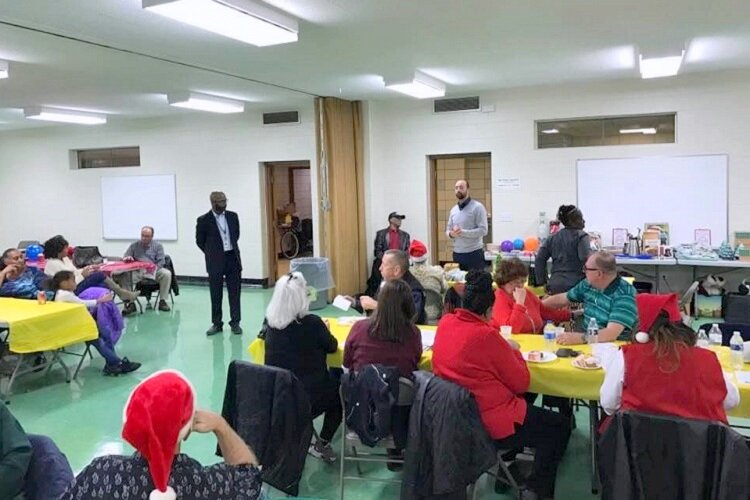
North Rosedale Park Civic Association : Keep the lines of communication open
The North Rosedale Park Civic Association (NRPCA) is a very established community association based in northwest Detroit.
It’s known for operating and maintaining the historic North Rosedale Park Community House. Built in the 1930s, it features a kitchen, audiovisual equipment, and free Wi-Fi, and it’s used for a variety of meetings, conferences, workshops, private parties, and receptions.
At the community house and its adjacent park, the civic association sponsors various programming for youth, seniors, and other residents, including walking and exercise groups, martial arts classes, and a book club. NRPCA also works to engage neighbors, enforce zoning and other codes with the city of Detroit, combat blight and abandoned homes, and keep the neighborhood safe.
The North Rosedale Park Civic Association is based on a block captain model, which helps maintain two-way communication between residents and the association.
“The block club captains primarily focus on reporting to the association, making sure that the information is disseminated to their neighbors,” says Beverly Frederick, A NRPCA board member. “They meet once a month, the first Tuesday of every month, and they’re also involved in all the community cleanups.”
To run a successful group like the NRPCA, Frederick believes communication is critical.
“That means being transparent in the information that you give and also reaching out if there’s a problem and staying on top of it,” she says. “Making sure that the community feels that you appreciate them is so important to [maintaining] a thriving neighborhood.”
The civic association keeps residents in the loop with e-blasts and telephone and email conversations. It also holds weekly and monthly meetings and quarterly community-wide meetings, which have been conducted over Zoom during the pandemic. In addition to all that, however, there’s one other essential ingredient that Frederick feels can make-or-break a community organization.
“There’s so many things that we have done,” she says. “But the [most important] thing is you just have to love your community. And with loving your community, everything falls in line!”
Resilient Neighborhoods is a reporting and engagement series that examines how Detroit residents and community development organizations are working together to strengthen local neighborhoods. It’s made possible with funding from the Kresge Foundation.
